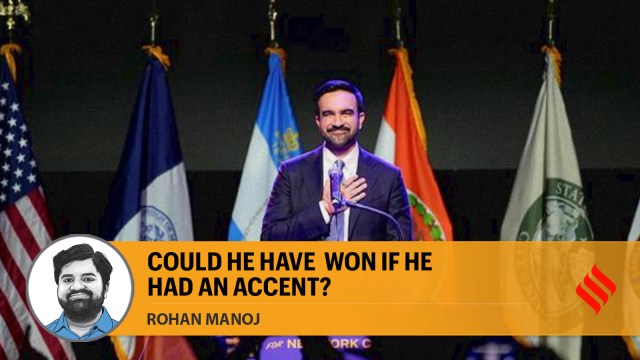
Zohran Mamdani was born in Uganda and lived there till he was five, when he moved to South Africa; two years later, he moved to the US. I was born in India five months before Mamdani and moved to the UK at the age of seven. Although there’s a paucity of research on the experiences of people who move abroad as children, a popular metric would group us both as “Generation 1.5” immigrants. But here’s an important difference: Mamdani sounds very American when he speaks, whereas my accent never became completely British. Perhaps that says something about our respective levels of integration in the host societies. Mamdani, while being confidently — even performatively — multicultural, has become American in the tradition of that “nation of immigrants”. Could he have become mayor of New York City if he had an accent? Arnold Schwarzenegger managed to become the “Governator” of California despite (or perhaps because of) his accent, but he is a White European. It may have been one strike too many against a Brown, Muslim socialist who has been very critical of Israel.
Such distinctions are important when asking the question, “What is the measure of a non-foreigner in the eyes of the ‘native’?” And consequently, “How far will a given immigrant or child of immigrants be accepted in the host society and even be able to succeed in fields traditionally reserved for ‘natives’, such as politics?” In this context, recall that Mamdani’s counterpart in London, Sadiq Khan, and the former British Prime Minister, Rishi Sunak, are both British-born. The foreign-born Mamdani, on the other hand, is constitutionally barred from holding the highest office of the United States.
In that sense, Mamdani stands out from the others as a true immigrant who integrated and has now broken into the most jealously guarded of native domains. This is especially noteworthy amid the rise of the White nationalist, anti-immigrant politics embodied by President Donald Trump in the US and others across the West. But it would be unwise to read too much into that — the “melting pot” of New York is not America, its demographics and politics are different, and what is achievable there may be a wild fantasy elsewhere. Mamdani’s true victory may lie in broadening the horizons of the Democrats and their idea of what is realistic or possible, in terms of his left-populist politics rather than his identity. And also, in living in a rent-controlled flat in Trump’s head.
Mamdani’s triumph also has symbolic significance in the face of the nativist tide sweeping the West, which is policing all dialogue, cancelling its critics and normalising racism. It can form part of a badly needed counter-narrative of hope, of the idea that the migrant can be accepted and even embraced — once a foundational truth of America, now under serious assault.